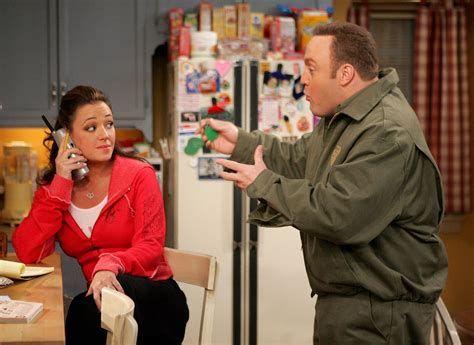
During a staged comedy sketch for a charity event, French President Emmanuel Macron, 47, was playfully slapped by his wife, Brigitte Macron, 72, eliciting laughter from the audience and sparking media interest due to the unusual role reversal.
PARIS – French President Emmanuel Macron found himself on the receiving end of a playful slap from his wife, Brigitte Macron, during a charity event, injecting a moment of levity into the typically formal atmosphere surrounding the head of state. The incident, part of a carefully choreographed comedy sketch, occurred during the annual “Pièces Jaunes” gala, a fundraising event aimed at supporting children’s hospitals and healthcare initiatives. The playful exchange, widely circulated on social media, has drawn attention not only for its unexpected nature but also for the context in which it occurred, highlighting the Macrons’ willingness to engage in lighthearted public displays while supporting a significant cause.
The sketch, designed to entertain attendees and encourage donations, featured President Macron in a comedic role. According to sources present at the event, the premise involved Brigitte Macron feigning annoyance at a joke made by her husband, leading her to playfully slap him on the arm. The reaction from the audience was immediate, with laughter filling the room as the playful interaction unfolded. The event, known for its blend of celebrity appearances, musical performances, and comedic acts, seeks to raise substantial funds for France’s network of children’s hospitals.
The “Pièces Jaunes” campaign, spearheaded by Brigitte Macron, holds a prominent place in the French social calendar. Over the years, it has raised millions of euros to improve the lives of young patients and their families, funding medical equipment, research projects, and recreational activities within hospital settings. The First Lady’s active involvement in the campaign underscores her commitment to children’s welfare and her dedication to leveraging her position to make a tangible difference in the healthcare sector.
The incident has ignited conversations about the evolving nature of political leadership and the blurring lines between formal decorum and public engagement. While some have interpreted the playful slap as a sign of the Macrons’ relatability and willingness to connect with the public on a personal level, others have raised questions about the appropriateness of such displays within the context of presidential authority. Political analysts have weighed in on the matter, examining the potential implications for the President’s image and the broader perceptions of leadership in a modern democracy.
The video of the incident quickly went viral, prompting a wide range of reactions from viewers around the world. Social media platforms buzzed with comments, memes, and parodies, reflecting the diverse perspectives and cultural nuances surrounding the event. While some praised the Macrons for their sense of humor and willingness to break from tradition, others expressed reservations, citing concerns about maintaining the dignity of the presidential office. The episode underscores the power of social media to amplify events and shape public opinion, particularly in an era of heightened political scrutiny and instantaneous information sharing.
Furthermore, the seemingly innocuous incident has sparked broader discussions about age differences in relationships and the societal norms that often govern such dynamics. The Macrons’ own relationship, characterized by a significant age gap, has been a subject of public fascination since Emmanuel Macron’s rise to prominence. The playful slap, in this context, has been interpreted by some as a subtle commentary on the couple’s dynamic and their ability to navigate the complexities of a high-profile marriage within the public eye.
The incident at the “Pièces Jaunes” gala serves as a reminder of the challenges and opportunities facing political leaders in the digital age. As traditional boundaries between public and private life continue to erode, leaders are increasingly expected to engage with citizens in unconventional ways, often through humor, personal anecdotes, and lighthearted displays. However, such engagements must be carefully calibrated to avoid alienating constituents or undermining the authority of the office. The Macrons’ playful slap, while seemingly harmless, underscores the delicate balance between authenticity, relatability, and the preservation of presidential decorum.
The broader impact of the incident on the “Pièces Jaunes” campaign remains to be seen. While some speculate that the attention garnered by the playful slap will translate into increased donations and public awareness, others express concerns that the focus may shift away from the campaign’s primary goal: supporting children’s hospitals. Ultimately, the success of the campaign will depend on its ability to leverage the moment to reinforce its message and inspire continued generosity from donors and supporters.
The event also highlighted the consistent support of Brigitte Macron toward various charitable causes. Her role extends beyond mere ceremonial duties, actively participating in and promoting initiatives that address social issues and improve the quality of life for vulnerable populations. Her involvement in the “Pièces Jaunes” campaign is a testament to her commitment to children’s welfare and her ability to mobilize resources and raise awareness for critical healthcare needs.
The incident involving the Macrons serves as a microcosm of the evolving relationship between political leaders and the public they serve. In an era of increased transparency and social media engagement, leaders are under constant scrutiny and must navigate a complex landscape of expectations and perceptions. The playful slap, while seemingly trivial, underscores the challenges of maintaining authenticity and relatability while upholding the dignity and authority of the presidential office.
Political commentators have observed that the incident provides insights into the Macrons’ strategy for managing their public image. By engaging in lighthearted displays and demonstrating a willingness to poke fun at themselves, they may be seeking to humanize their leadership and foster a sense of connection with ordinary citizens. However, such strategies carry inherent risks, as they can be easily misinterpreted or exploited by political opponents.
The incident has also raised questions about the role of humor in political discourse. While humor can be an effective tool for engaging audiences and conveying messages in an accessible way, it must be used judiciously to avoid trivializing serious issues or offending sensitive groups. The Macrons’ playful slap highlights the delicate balance between levity and seriousness in the realm of political communication.
The aftermath of the incident has been marked by a flurry of media coverage and online commentary, reflecting the enduring fascination with the Macrons and their unconventional approach to leadership. While some have dismissed the playful slap as a harmless moment of levity, others have seized upon it as an opportunity to critique the President’s policies or question his judgment. The incident serves as a reminder of the intense scrutiny and polarized opinions that often accompany political leadership in the modern era.
Furthermore, the incident has underscored the power of visual media to shape public perceptions. The video of the Macrons’ playful slap quickly went viral, reaching millions of viewers around the world and generating countless interpretations and reactions. The visual nature of the event amplified its impact, making it a topic of widespread discussion and debate.
The incident also highlights the challenges of maintaining privacy and control in the digital age. In an era of ubiquitous smartphones and social media platforms, every public interaction is potentially subject to recording, dissemination, and scrutiny. Political leaders must navigate this reality with care, recognizing that their actions and words are constantly being observed and evaluated by a global audience.
The incident involving the Macrons serves as a reminder of the evolving norms and expectations surrounding political leadership. As traditional boundaries between public and private life continue to blur, leaders are increasingly expected to engage with citizens in authentic and relatable ways. However, such engagements must be carefully calibrated to avoid undermining the authority of the office or alienating constituents.
The incident at the “Pièces Jaunes” gala has undoubtedly added a new chapter to the ongoing narrative surrounding the Macrons and their approach to leadership. Whether the playful slap will be remembered as a harmless moment of levity or a misstep in political judgment remains to be seen. Ultimately, its impact will depend on how the Macrons manage the aftermath and how the public interprets the event in the context of their broader political agenda.
The event at the gala also served as a fundraising platform, gathering significant contributions toward children’s healthcare. The funds raised are crucial for improving medical facilities and providing support for young patients and their families, further emphasizing the importance of such charitable initiatives. Brigitte Macron’s continuous support has played a significant role in the campaign’s success.
In addition to the immediate reactions, analysts are considering the long-term implications of this event on the Macrons’ public image. The ability to blend formality with moments of levity can either strengthen their connection with the public or create unintended perceptions of trivializing their roles. How they address and manage the narrative in the coming weeks will be critical.
The video’s viral spread underscores the increasing role of social media in shaping political discourse. The reactions, memes, and discussions generated online highlight the power of digital platforms in influencing public opinion and the challenges political figures face in managing their image in the digital age.
The “Pièces Jaunes” campaign has a rich history of supporting children’s hospitals and healthcare facilities throughout France. The annual event brings together celebrities, political figures, and members of the public to raise funds and awareness for this important cause, reflecting a collective commitment to improving the lives of young patients and their families.
The playful interaction between the Macrons also invites discussion about the portrayal of relationships in the public sphere. As public figures, their dynamics are often subject to scrutiny, and moments like these provide glimpses into their personal lives. How such moments are interpreted can influence public perceptions of their leadership and character.
The incident prompts a reflection on the balance between political leadership and personal expression. In an era where authenticity is highly valued, leaders are often encouraged to show more of their personal side. However, this must be balanced with maintaining the dignity and decorum expected of their office.
The reactions to the incident vary widely, reflecting diverse cultural and social perspectives. Some see it as a harmless display of affection, while others view it as inappropriate for political figures. This underscores the challenges of navigating cultural sensitivities and expectations in the globalized world.
Brigitte Macron’s role in supporting various charitable causes has consistently highlighted her dedication to social welfare. Her involvement in initiatives like the “Pièces Jaunes” campaign demonstrates her commitment to using her platform to make a positive impact on society.
The incident raises questions about the boundaries between public and private life for political leaders. The increasing transparency afforded by social media means that every action is subject to potential scrutiny and interpretation. This requires leaders to be mindful of their behavior in all settings.
The Macrons’ response to the media coverage and public reactions will be critical in shaping the narrative around this event. How they address the issue and whether they acknowledge or dismiss the controversy will influence how it is remembered and perceived in the long term.
The incident serves as a case study in how seemingly minor events can generate significant attention and discussion in the age of social media. It highlights the challenges political figures face in managing their public image and navigating the complexities of modern communication.
The Macrons’ willingness to participate in comedic sketches reflects a broader trend of political figures using humor to connect with audiences. However, this approach carries inherent risks, as humor can be easily misinterpreted or used to undermine their authority.
The incident at the “Pièces Jaunes” gala also sheds light on the broader dynamics of French society and culture. The reactions and interpretations of the event reflect the values, norms, and expectations that shape public discourse in France.
The success of the “Pièces Jaunes” campaign relies on continued public support and generosity. The funds raised are essential for providing critical resources and services to children’s hospitals and healthcare facilities across the country.
The Macrons’ relationship has often been a topic of public discussion due to their age difference. The playful interaction at the gala provides another opportunity to reflect on the dynamics of their relationship and how it is perceived by the public.
The incident underscores the challenges of maintaining authenticity while navigating the demands of political leadership. In an era where transparency is highly valued, leaders are often expected to be more open and relatable. However, this must be balanced with maintaining the dignity and authority of their office.
The “Pièces Jaunes” campaign serves as an important example of how charitable initiatives can bring together diverse stakeholders to address critical social issues. The involvement of celebrities, political figures, and members of the public highlights the collective commitment to improving the lives of vulnerable populations.
The Macrons’ approach to public engagement reflects a broader trend of political leaders using unconventional methods to connect with audiences. This includes using social media, participating in entertainment events, and engaging in informal communication.
The incident at the gala raises questions about the role of gender in shaping public perceptions of political figures. How male and female leaders are perceived and evaluated often differs, and events like these can highlight these disparities.
The Macrons’ ability to manage the narrative surrounding this incident will be crucial in shaping their public image. How they respond to criticism and whether they acknowledge or dismiss the controversy will influence how it is remembered and perceived in the long term.
The incident serves as a reminder of the constant scrutiny and intense pressure that political leaders face in the modern era. Every action is subject to potential interpretation and criticism, and leaders must be prepared to navigate these challenges with grace and resilience.
The “Pièces Jaunes” campaign is a testament to the power of collective action and the importance of supporting charitable causes. The funds raised are essential for providing critical resources and services to children’s hospitals and healthcare facilities across France.
The Macrons’ relationship, often discussed due to its age difference, has been analyzed through various lenses, including sociological and cultural perspectives. The incident at the gala provides a momentary glimpse into their dynamic, open to interpretation and adding to the public’s perception of their partnership.
The incident has also touched on themes of power dynamics within relationships, particularly given the public roles of those involved. Observers have considered whether the playful slap was a display of affection, a lighthearted moment of role reversal, or something else entirely.
The media coverage of the event reflects diverse perspectives, ranging from straightforward reporting to humorous takes and critical analyses. The wide range of viewpoints highlights the complexities of interpreting such events and the challenges of shaping a consistent narrative.
The viral nature of the video underscores the increasing role of digital platforms in disseminating information and influencing public opinion. The speed and reach of social media can amplify events, transforming them into global conversations in a matter of hours.
The reactions to the incident provide insights into cultural norms and expectations surrounding behavior in public settings. What is considered acceptable or inappropriate can vary across different cultures and social groups, leading to diverse interpretations of the Macrons’ interaction.
Brigitte Macron’s consistent support for charitable causes showcases her commitment to social responsibility and her dedication to making a positive impact on society. Her role in the “Pièces Jaunes” campaign exemplifies her efforts to improve the lives of vulnerable populations.
The incident also raises questions about the responsibilities of public figures to uphold certain standards of behavior. While authenticity and relatability are valued, there is also an expectation that leaders will maintain a level of decorum that befits their position.
The Macrons’ response to the incident will likely be carefully managed by their communications team. Political strategists often work to shape the narrative and mitigate any potential damage to their client’s reputation.
The “Pièces Jaunes” campaign has a long-standing tradition of engaging celebrities and other high-profile individuals to raise awareness and funds. This strategy helps to attract attention to the cause and encourage donations from a wider audience.
The Macrons’ relationship, because of its age difference, often serves as a talking point about evolving social norms and attitudes. The incident at the gala offers another opportunity to reflect on these issues and challenge traditional expectations.
The incident highlights the challenges of balancing personal expression with professional obligations in the context of political leadership. Leaders must navigate the fine line between being authentic and relatable while also maintaining the dignity and authority of their office.
The “Pièces Jaunes” campaign continues to play a vital role in supporting children’s hospitals and healthcare facilities throughout France. The funds raised are essential for providing the resources and services needed to improve the lives of young patients and their families.
Frequently Asked Questions (FAQ)
Q1: What exactly happened between Emmanuel Macron and Brigitte Macron at the charity event?
A1: According to reports, during a comedy sketch at the annual “Pièces Jaunes” gala, French President Emmanuel Macron was playfully slapped by his wife, Brigitte Macron. The sketch was designed to entertain attendees and raise funds for children’s hospitals. Brigitte Macron feigned annoyance at a joke made by her husband and playfully slapped him on the arm.
Q2: Why did Brigitte Macron slap President Macron? Was it serious?
A2: No, it was not serious. The slap was part of a pre-planned comedic sketch for the “Pièces Jaunes” charity event. The purpose was to entertain the audience and encourage donations for the cause. It was intended to be lighthearted and humorous.
Q3: What is the “Pièces Jaunes” campaign and why is it important?
A3: The “Pièces Jaunes” campaign is an annual fundraising event in France that supports children’s hospitals and healthcare initiatives. Spearheaded by Brigitte Macron, the campaign raises millions of euros to improve the lives of young patients and their families, funding medical equipment, research projects, and recreational activities within hospital settings. It’s crucial for enhancing the quality of care and support provided to children in need.
Q4: How has the public reacted to the video of the incident?
A4: The video of the incident has gone viral and prompted a wide range of reactions. Some people found it humorous and praised the Macrons for their willingness to engage in lighthearted displays, while others questioned the appropriateness of such displays within the context of presidential authority. The reactions reflect diverse cultural and social perspectives, and the incident has sparked discussions about the evolving nature of political leadership and public engagement.
Q5: What implications does this incident have for President Macron’s image and political career?
A5: The implications are varied and depend on the interpretation of the public. While some may view it as a sign of relatability and approachability, others might see it as undermining the dignity of his office. Political analysts suggest that how the Macrons manage the narrative around this event will be critical. If handled well, it could strengthen their connection with the public; if not, it could lead to negative perceptions. It also highlights the challenges of balancing authenticity with the expectations of presidential decorum in the age of social media.
Q6: Is this a common occurrence for the Macrons to participate in comedic sketches?
A6: While it’s not a daily or weekly occurrence, the Macrons have shown a willingness to engage in less formal settings to connect with the public. Participating in a comedy sketch for a charity event is part of this approach, allowing them to show a more human side and support a good cause simultaneously. This is balanced with maintaining the formality required for presidential duties.
Q7: How does this event reflect on the dynamics of the Macrons’ relationship, especially considering their age difference?
A7: The playful slap, given the Macrons’ significant age gap, has sparked discussions about power dynamics and societal norms. Some interpret it as a subtle commentary on their relationship and their ability to navigate the complexities of a high-profile marriage. It provides a moment that invites consideration of how the public perceives their partnership and the role reversal showcased in the sketch.
Q8: What role does Brigitte Macron play in supporting charitable causes in France?
A8: Brigitte Macron plays a prominent role in supporting various charitable causes in France, particularly those focused on children’s welfare. Her involvement extends beyond ceremonial duties, as she actively participates in and promotes initiatives that address social issues and improve the quality of life for vulnerable populations. Her leadership in campaigns like “Pièces Jaunes” underscores her commitment to making a tangible difference in the healthcare sector and broader society.
Q9: How has social media amplified this event, and what challenges does that create for political figures like President Macron?
A9: Social media has amplified the event by allowing the video to quickly go viral, reaching millions of viewers and generating countless interpretations and reactions. This creates challenges for political figures like President Macron because every public interaction is subject to recording, dissemination, and scrutiny. It requires them to be mindful of their behavior in all settings and to manage their public image effectively in the face of instant and widespread commentary.
Q10: What are the broader implications of this incident for the evolving norms and expectations surrounding political leadership in the digital age?
A10: The incident underscores the evolving norms and expectations surrounding political leadership, where leaders are increasingly expected to engage with citizens in authentic and relatable ways. As traditional boundaries between public and private life continue to blur, leaders must carefully balance the need to be genuine with the responsibility to maintain the dignity and authority of their office. It highlights the challenges of navigating a complex landscape of expectations and perceptions in an era of increased transparency and social media engagement.









